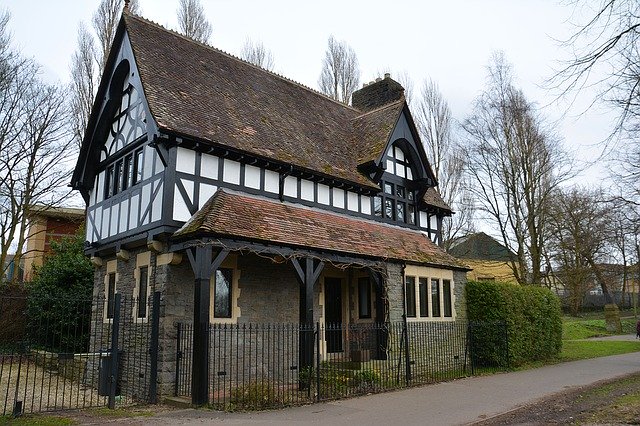An old house can hide a wealth of history within its walls. Equally, entering an older house can be like walking into a time machine to the future!
Perhaps it has been fully renovated from the inside out, which will of course increase the amount of money you sell the house for when using a we will buy your house service.
So if you are interested in local history, particularly that which is relevant to you, or perhaps you are just curious, look no further.
Finding When A House Was Built
Why does knowing the age of your house matter?


Besides our natural curiosity as human beings, the age of your house can actually be important for a number of reasons. The primary reason for most homeowners relates to insurance. This is because building and content insurers often ask for the age of your property.
Unfortunately, older houses tend to push you into a higher insurance bracket.
Furthermore, it can impact upon any work you wish to do upon the house. A property with listed features is likely to have heavy restrictions on any renovation work. Usually this is for the sake of preserving historical features.
However, it can be down to safety reasons also. For example, houses built before 1977 may contain asbestos, which presents a significant threat to the health of those inside.
Also, if you are looking to sell your house, the age of the house can even be a selling point. Older houses with interesting or distinct period features possess a lot of character that is appealing to buyers.
Equally, new builds can cater to a different market, or people that are looking for a more modern look.
What resources are available to me?
HM Land Registry
In the UK, this should be your first stop in finding out the true age of your house.
However, they keep records of land ownership, as opposed to what is built on the land. So if you bought your house from a developer, you may have to contact them directly.
Hopefully they can shed some light on the rough age using the date of the first transfer or lease by the developer, as this date is often referred to in the register.
Unfortunately this means that if your property was not sold by the developer who built it then HM Land Registry will not have information on its age.
Your neighbours
Often an overlooked method, asking your neighbours for information on your house age is actually one of the most simple methods to finding out how old your property is.
Not only are they likely to live in houses of a similar age, but they may have done some research of their own!
If they are recent purchasers they may have been told the original age of the house, and this method requires very little effort.
Alternative options
If you are in the process of buying a house, it might be worth asking your seller or their agent. When putting a house on the market, sellers are required to complete a ‘seller’s property information form’. These can contain the property’s age.
Alternatively, if you are taking out a mortgage on the house then the survey completed whilst processing this may contain the age of the property.
Furthermore, the local authority often has a record of any planning permission that has been granted on the property
Finding the age of older houses
Older homes are often harder to trace back to an original date of construction. The lack of public records and archives in previous centuries means that owners of older houses often have to adopt more abstract methods to identify this.
HM Land Registry offers public access to the 1862 Act Register. If you suspect that your house was built before this date, then this is an excellent resource. It contains historical information on people and over 2000 properties.
A further option is to check the archives of your local area. For example parish records, county record offices, or a nearby library. You could also check other historical records such as census returns. These were made at 10 year intervals between 1841 and 1911 to keep tabs on the population and their density. They could reveal the first mention of your address, and give a greater approximation of date.
Similarly, the UK has several historic records of houses that could be a good resource if you know what you are looking for. For example, if you are living in Wales, check out Cadw’s National Historic Assets of Wales. Or if you own property in England, you could look to see if your house is listed in Historic England’s National Heritage List for England.
Alternatively, you could get in contact with a local history society or amateur historian. If they are unable to pinpoint a specific date, perhaps they could take a look at the architecture to give an approximate time of construction. Style and features can be a good giveaway of the age of a home, particularly the position of windows or type of roof.
Frequently Asked Questions (FAQs)
Will insurers tell you when your house was built?
Yes, some insurers do provide this information. However, it is not entirely reliable as it is based on your postcode area as opposed to the specific property. The methods above will give you a more accurate idea of the age of your house.
Should I avoid buying an old house?
Not at all, this is an unnecessary precaution! Choosing a house should be based on personal preference. Although it is important to remember they may be more work and can be less energy efficient. Therefore, they can present a different set of challenges compared to new houses.
The Bottom Line
There are many reasons why an individual is seeking to find out the age of their property. Although this can be tricky sometimes, the resources laid out in this article should hopefully highlight effective methods to get the answers you need!
